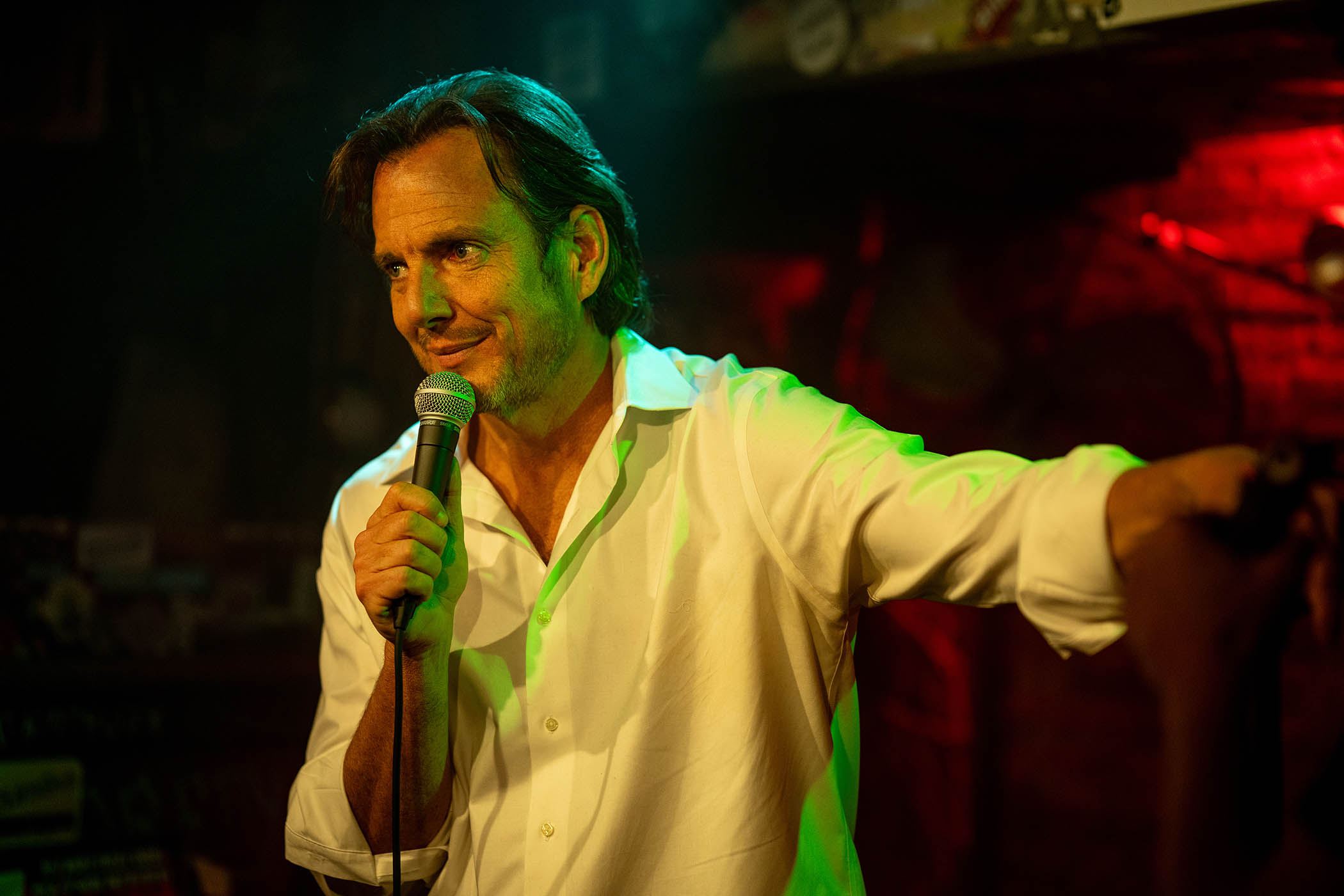Heavens above, not another biopic. I’m still in recovery from A Complete Unknown, James Mangold’s attempted unveiling of The Mysterious Soul of Bob Dylan starring Timothy Someone-or-other. Enlightening to learn that the Bobster was a Bad Boyfriend, huh? Now here comes Scott Cooper’s authorised Springsteen: Deliver Me from Nowhere, starring The Bear’s Jeremy Allen White in brown contact lenses.
Anything with the imprimatur of an artist or estate is bound to be tediously hagiographic; even more problematic is the impossibility of capturing the wildness of the creative spark. Remember the stunning moment in Peter Jackson’s Beatles documentary when Paul McCartney comes up with Get Back? The astonishment is in the accidental nature of the scene. This is as close as we can get to seeing the real thing because it is, well, the real thing.
Biopics can flourish when the lives featured are not those of the so-called great and good. I’m keen to see I Swear, Kirk Jones’s feature based on the life of John Davidson, a campaigner for Tourette’s. I loved Philomena, Stephen Frears’s 2013 film based on Martin Sixsmith’s book. We can’t think we know the characters in these films: and so we, and the filmmakers, can let them be themselves.
The Booker prize is coming for the kids. Starting in 2027, there’s to be a Children’s Booker prize, worth the same amount as the grown-up Booker (£50,000) but, unlike that prize, open to books in translation, which widens the net considerably. The first chair of judges will be Frank Cottrell-Boyce, the current UK children’s laureate.
Is this new prize a Good Thing? I’d like to think it is, since anything that draws attention to great writing for kids is to be commended, not least when children’s enjoyment of reading has fallen to an all-time low, according to the National Literacy Trust. Still, there’s already quite a lot of awards in this sphere: the Carnegie medal, the Waterstones children’s book prize, the Astrid Lindgren memorial award, the last the Nobel of kidlit. I wouldn’t blame the Carnegie, say, for feeling shouldered out of the spotlight – but then again that spotlight too often falls, let’s face it, on the celebrity stampede into the field: Keira Knightley’s just released I Love You Just the Same (“inspired by the author’s experiences as a parent”, ye gods) – to be thrown on to the pile that includes books by LeBron James, Jimmy Fallon, Kate McKinnon… I can’t bear to go on.
Will the new junior Booker stem this dismal tide and bring the bandwagon-jumping publishers back to their senses? I fan the tiny embers of my hope.
When Friedrich Engels went to Manchester in 1842 he was spared the misery of the Avanti West Coast trains that haul you there now: but he found, as he wrote in The Condition of the Working Class in England, plenty of misery, and a city segregated by class. But a young Cambridge historian, Emily Chung, has used data from the digitised 1851 census to show that Karl Marx’s pal may have been playing a little fast and loose with his reporting, something that may not surprise political observers of the 21st century. “I found doctors, engineers, architects, surveyors, teachers, managers and shop owners living in the same buildings as poor weavers and spinners,” Chung said of her work, just published in The Historical Journal.
I’ve just got back from the city myself, I was there for the Manchester literature festival, now in its 20th year. I still find what Engels didn’t quite manage to see: a vibrant, lively place with a growing population, the historic home of writers and radicals from Emmeline Pankhurst to John Cooper Clarke, Elizabeth Gaskell to Lemn Sissay. And once you’ve recovered from the ghastly train, you can ride the tram! Come on. Who doesn’t love a tram?
Related articles:
Photograph by Macall Polay/20th Century Studios via AP
Newsletters
Choose the newsletters you want to receive
View more
For information about how The Observer protects your data, read our Privacy Policy



